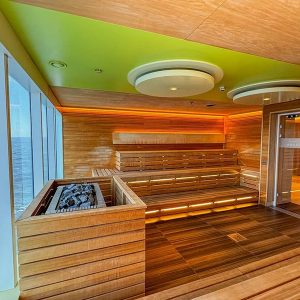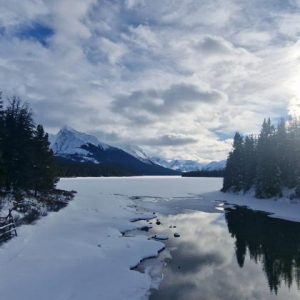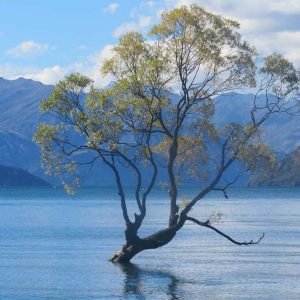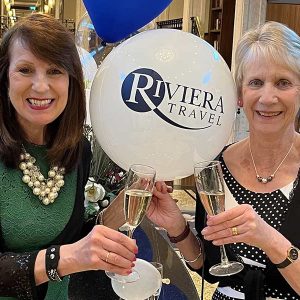 I believe you travelled around Africa when you first left school. What was it that drew you to this continent? Had a journey there always been a dream or was it something else that pulled you there?
I believe you travelled around Africa when you first left school. What was it that drew you to this continent? Had a journey there always been a dream or was it something else that pulled you there?
I went to Africa as a small act of rebellion. All my friends were taking gap years in Australia. I wanted to go somewhere I wouldn’t bump into people I knew. I had never travelled outside Europe and had only been abroad three times. Africa seemed the ultimate choice – a place where everything would be unfamiliar and everything would be an adventure.
Which country in Africa has most surprised you?
Every country I have ever travelled in – whether in Africa or not – always has the capacity to surprise. Cameroon stands out though. I went there in the mid ‘90s to do a story on the aftermath of an extraordinary natural disaster. The country was in a certain amount of turmoil and the newspaper I was writing for was nervous about me going alone, insisted that I check in with the Embassy when I got there. But, as has so often been my experience, the minute I stepped off the plane, I felt at home. It is the people who make a place and the people of Cameroon were unforgettably kind, hospitable and generous.
Tell me a little about your time in Ethiopia with the Afar people for your show The Hottest Place on Earth.
It was a hard place to be – even just for a few weeks. The Afar region is dry, arid, dusty and unbelievably hot. For anyone to live there at all seems an almost belligerent show of survival. There is little in the way of water, it is almost impossible to grow crops, there is huge poverty, disease and malnutrition.
The Afar are famed as warriors – Wilfred Thesiger writes about going there with some trepidation knowing their reputation – and they are tough characters who drive a hard bargain and will fight ruthlessly if they believe there is cause to do so. They are fiercely proud, suspicious of outsiders and difficult to get to know, but I came away from the Afar region with huge respect and admiration for them.
The Frankincense Trail is a programme that took you two thousand miles across what is now exceptionally hostile territories. How did you find this region when you were filming? Would you visit it again?
The filming of that series took me from Oman, through Yemen, Saudi Arabia, Jordan, Israel and finished in Palestine. It was in 2009, before the Arab Spring and before the tragedies that have befallen the region since, although it has always had its volatile hotspots. When you spend time in a region like that you very quickly realise that, as ever, the majority of people you come across rarely reflect the reputation a country might have from the outside. 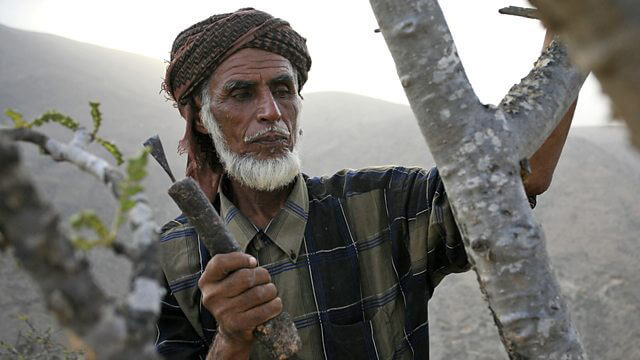 Everywhere I went I was treated with the utmost courtesy. Language and culture were rarely a barrier. I was invited into people’s homes, shared meals, life stories. I experienced every emotion from anger and frustration to sheer joy. It is a region often misrepresented and misunderstood, full of injustices, but also full of beauty, culturally rich, endlessly fascinating. It breaks my heart to see what is happening in Yemen now. I think so often of the people I met there, the ordinary families who were so kind to me, the amazing woman who was my guide. I can’t imagine what they are living through now. And yes, I would go back, anytime.
Everywhere I went I was treated with the utmost courtesy. Language and culture were rarely a barrier. I was invited into people’s homes, shared meals, life stories. I experienced every emotion from anger and frustration to sheer joy. It is a region often misrepresented and misunderstood, full of injustices, but also full of beauty, culturally rich, endlessly fascinating. It breaks my heart to see what is happening in Yemen now. I think so often of the people I met there, the ordinary families who were so kind to me, the amazing woman who was my guide. I can’t imagine what they are living through now. And yes, I would go back, anytime.
Your programme Extreme Wives sounds fascinating, what inspired that? How did you personally react to the extraordinary lives of the women you filmed? Do you feel that the places they lived in was a contributing factor to their ‘extremeness’?
The series Extreme Wives attempted to reflect as faithfully as we could the lives of women living in three different cultures in three very different parts of the world. None of those parts of the world were particularly extreme – but it was their own cultures that could appear extreme to those looking in from the outside. It was a challenging series for all sorts of reasons – mainly though, because I felt a huge responsibility to ensure that the women who were brave enough to film with us (and they really did have to be brave) were given a voice that was theirs – not mine. Even if I strongly disagreed with what they believed or practiced. It was an emotional rollercoaster, the filming was intense and all-consuming. I was threatened by a furious mob armed with spears in Kenya, thrown out of a wedding ceremony in Israel, went undercover in India to film prostitutes, to protect their identity. I left each country realising how lucky I am to have been brought up in a way that allows me to make choices, say what I think, be independent, despite the fact that I am a woman. And with endless admiration for the women we filmed with.
Lots of your programmes have involved wildlife, and crocodiles seem a special feature. Do you have a particular affinity with one specific animal? Sheep apart, obviously!
I’m not sure I can claim to have an affinity with a Six Gill Shark, but filming one from a submarine, 300 metres below the surface of the sea was one of the most unforgettable wildlife encounters I have ever had and without question helped me have the career I have now.
 What has been your best moment when travelling? And your worst?
What has been your best moment when travelling? And your worst?
Every journey has its highlights and its difficulties. That’s what makes travelling so compelling. And often the best bits wouldn’t feel so great without the worst bits, so each are equally important. I don’t have a best or a worst moment, but I like a journey that has both.
What is your reason for travelling? Itchy feet? A desire to understand other cultures? Curiosity? A desire to find wild places?
All those things! To misquote Samuel Johnson, if you are tired of the world you are tired of life!
What’s your view on air travel and the carbon footprint it leaves? Should we all holiday at home perhaps?
It would be deeply hypocritical of me to suggest everyone holidays at home when I fly as much as I do. Not that holidaying the UK is a hardship. For a small island it has so much to offer from beautiful beaches and wild countryside to vibrant cities, world class museums, restaurants and attractions. And my very first journey on my own was around Europe by train, which was fantastic. So we do have plenty of options if we chose not to fly.
If you could travel anywhere, no expenses spared, where would you go and how would you travel?
Back in time on a magic carpet.
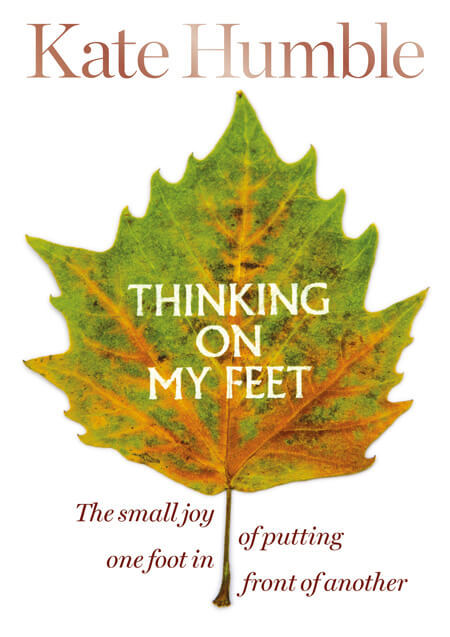
Thinking on My Feet: The small joy of putting one foot in front of the other by Kate Humble, published by Aster, £20 hardback (octopusbooks.co.uk)
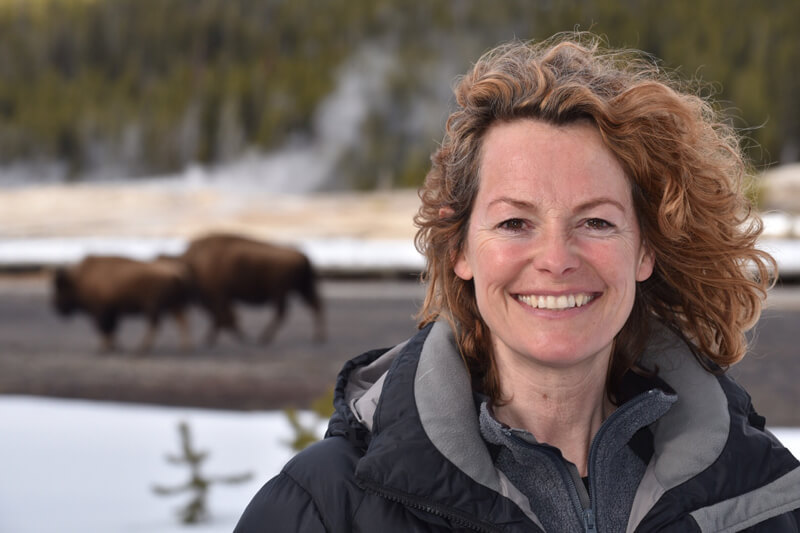
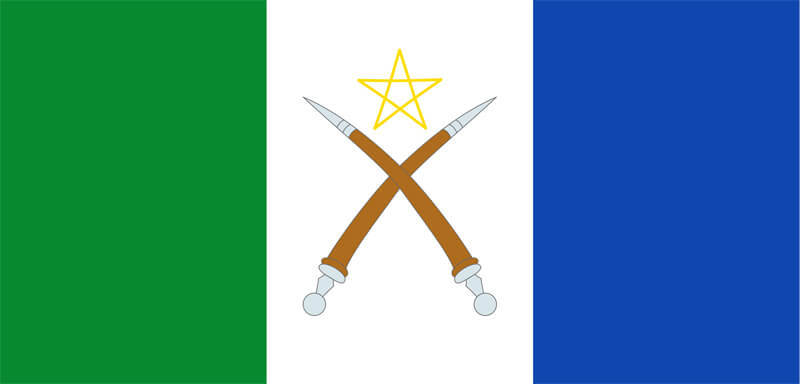
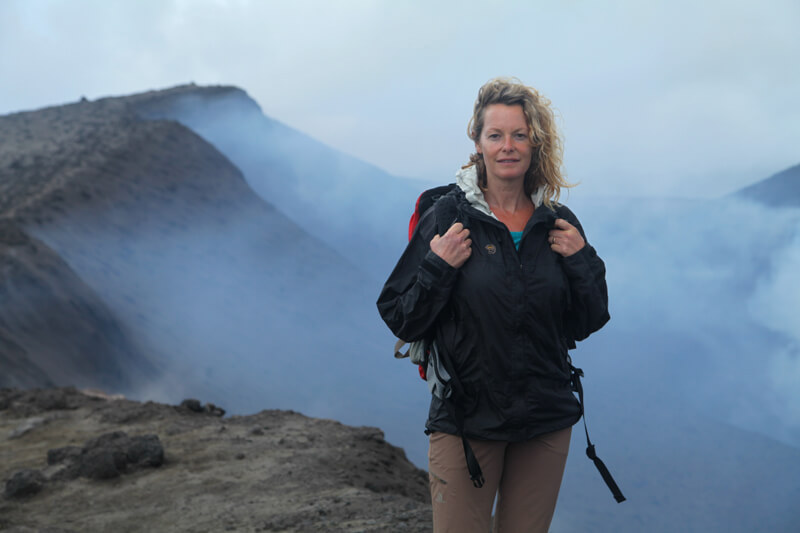 What has been your best moment when travelling?
What has been your best moment when travelling?
